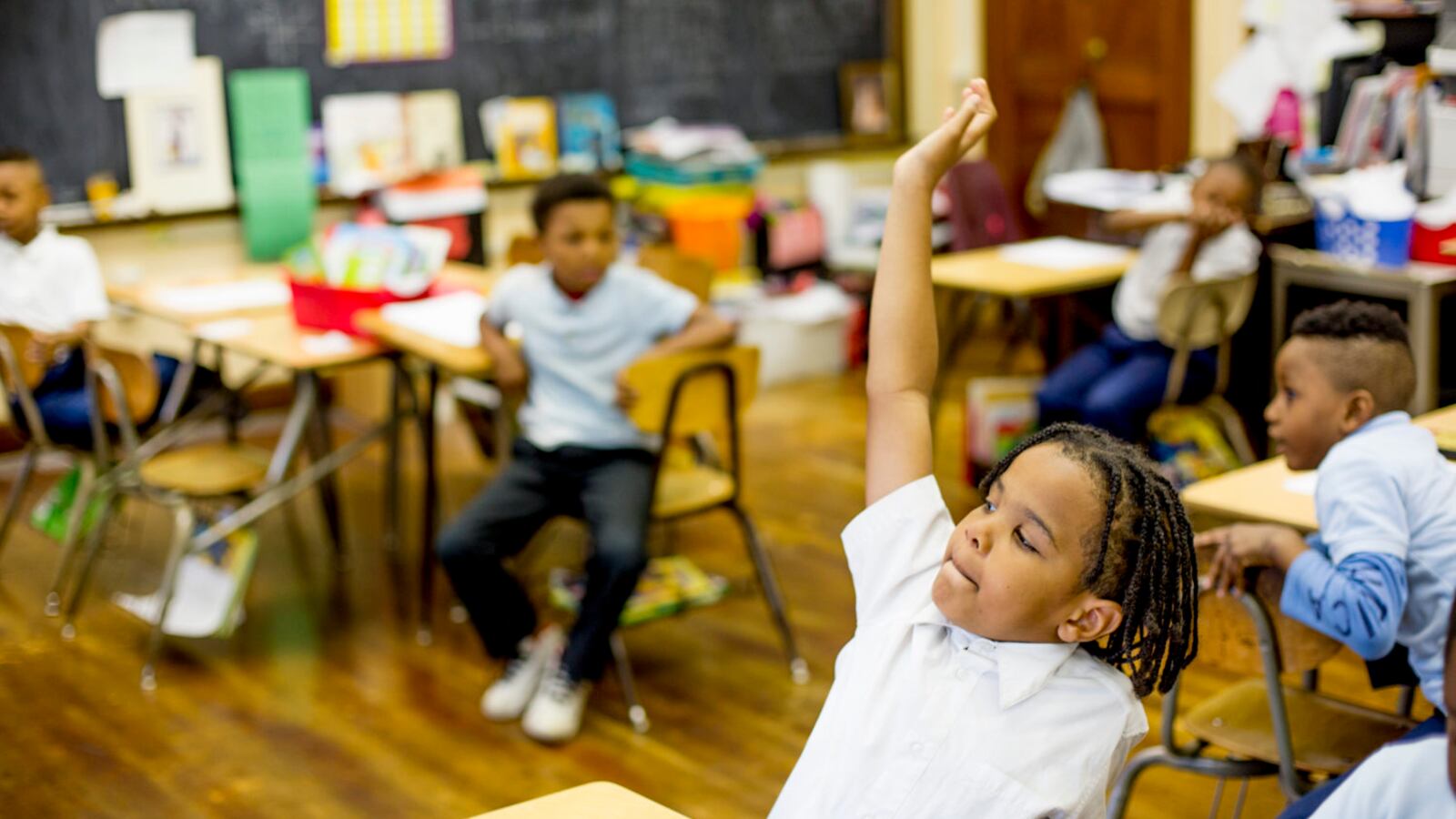A school improvement program that has helped some of Memphis’s most struggling schools will add 11 schools next year, under the first proposal from Shelby County Schools’ new chief academic officer.
At the same time, the district will begin weaning 13 schools that have improved off of the additional funding that the program provides.
And the district would begin screening all first-graders for giftedness in an effort to make enrollment in gifted programs more equitable.
The recommendations are the first from the district’s new chief academic officer, Antonio Burt, who was appointed in September after running the Innovation Zone school improvement initiative.
“We’re really focused on system-wide equity,” he told school board members Tuesday. “We can really switch the conversation from equity to really focusing on equity in action.”
In recent years, Memphis has become a model in Tennessee’s school turnaround efforts. But district officials believe Shelby County Schools has not effectively scaled those lessons up to impact more students more quickly. Burt said his plan will fill in those gaps.
Burt did not break down how much these initiatives would cost, but incoming interim superintendent Joris Ray said the proposals would anchor the district’s budget priorities for the 2019-20 school year.
Here is what you need to know:
All first-grade students would be tested to see if they are eligible for CLUE, the district’s gifted education program.
Currently, teachers pick students to be tested for admittance into a program that promotes higher-level grade work for students from preschool to high school.
Burt said the way students are chosen has led to wide disparities in the racial makeup of the program. Though white students make up 7 percent of the district’s population, they make up 38 percent of the students in CLUE. Black students make up 77 percent of the district’s enrollment, but 45 percent of students in the program.
Nationally, black students are far less likely to be placed in gifted programs, even if they have the same test scores as their white peers, and especially if their teacher is white, according to a 2016 study at Vanderbilt University.
For the first time, all Memphis schools identified by the state as low performing will get additional money.
Eleven schools will be added to the district’s Innovation Zone, known for improving test scores.
The iZone pumps about $600,000 per school for teacher bonuses, for more resources to combat the effects of poverty, and for principals to have more say over which teachers they hire.

Some of the schools Burt wants to add have been languishing on the state’s list since it was first created in 2012, but have not received substantial support.
As some schools are being added to the iZone, others have improved their performance, and are no longer eligible for additional state funding. Shelby County Schools, which has covered the reduction in funding, for the first time plans to gradually wean 13 schools off that extra support. Burt vowed to monitor those schools to make sure they don’t slip again.
Scroll down to the bottom of the story to see which schools will be affected.
Burt’s plan also would combine Hamilton Elementary and Hamilton Middle into a K-8 school next year, and separate Raleigh-Egypt Middle/High into two schools again after a charter operator moved out the neighborhood. The Hamilton school proposal is also part of outgoing Superintendent Dorsey Hopson’s recommendation to consolidate some schools.
Every student in nine high schools would get a hand-held device or laptop this fall, with a goal to expand to every school by the 2024-25 school year.
The district hasn’t decided whether it would be laptops, tablets, or some other device, but officials say students should have more access to technology.
“I think about children in the municipalities and across the nation… they have a device in their hand,” said Ray. “All their textbooks, they’re loaded to one device. So we need to in Shelby County Schools increase technology and give our students the opportunity to compete worldwide.”
But board members cautioned the district should have a robust learning plan for those devices.
“It’s more than just putting a device in hand,” said board member Miska Clay Bibbs.
Every high school will have two Advanced Placement courses for college credit by school year 2020-21.
Students from poor families are more likely to attend a high school with fewer advanced courses, according to a 2018 district report. Burt wants to change that.
The plan calls for more teachers in every high school to be trained to lead an honors, Advanced Placement, or pre-Advanced Placement class.
Below are the schools that would be added to and removed from the iZone. Read the district’s full presentation below.
The schools that would be added to the iZone are:
- LaRose Elementary
- Dunbar Elementary
- Getwell Elementary
- Hawkins Mill Elementary
- Woodstock Middle
- Georgian Hills Middle
- Craigmont Middle
- Wooddale High
- Sheffield High
- Oakhaven High
- Manassas High
These schools would be cycled out of the iZone:
- Cherokee Elementary
- Treadwell Elementary
- Lucie E. Campbell Elementary
- Ford Road Elementary
- Westhaven Elementary
- Douglass K-8
- Chickasaw Middle
- Treadwell Middle
- Sherwood Middle
- Hamilton Middle
- Douglass High
- Mitchell High
- Melrose High


